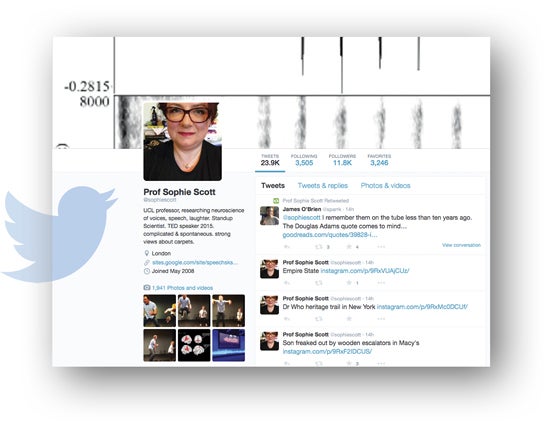Getting Serious About Laughter

Sophie Scott was 6 years old when she first remembers hearing her parents laugh—not soft chuckles, but the kind of belly laughs that left them breathless.
“I didn’t know what they were laughing at,’’ says Scott. “But I wanted in.’’
Scott got her wish. The little girl from Blackburn, England, grew up to become a neuroscientist and one of the world’s leading researchers on laughter as deputy director of the Institute of Cognitive Neuroscience at University College, London. She also makes people laugh as—no joke—a standup comedian.
Scott visited URI in late October as part of the annual Honors Colloquium, which this year focused on the power of humor.
You’re a scientist. Why do you like being in front of a large audience cracking jokes—aren’t you terrified?
It is terrifying, but it’s also absolutely delightful if—IF—people laugh.
Fake laughter is contrived, but we all do it. Why?
It’s an extremely important social cue. Most of the time when we laugh it’s a bit fake, or controlled. But even such posed laughter is a very useful way of managing interactions.
Does laughter makes us healthier?
It’s critical to many aspects of social and emotional health, and it’s interesting to know how the perception and production of laughter can be affected by things that change our mental health.
Do babies who laugh grow up to be adults who laugh? If so, what can parents do to make their infants smile?
The short answer is we don’t really know, but we do know that if baby rats are tickled a lot, they laugh more when they are adults. Babies laugh during interactions like tickling or play, so that’s a good place to start.
Do rats really laugh?
They make a very specific chirping sound when they are playing with each other, and when they are tickled or when they anticipate being tickled. So it doesn’t sound much like laughter to humans, but you find it in the same kinds of behaviors.
 Home
Home Browse
Browse Close
Close Events
Events Maps
Maps Email
Email Brightspace
Brightspace eCampus
eCampus


